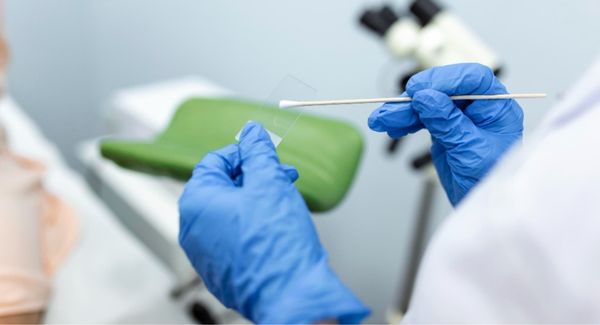
If you’ve ever wondered what a pap smear is about, how it’s done and what to expect, you’re in luck. A Pap smear (also called a Pap test), is a medical procedure that is done to test for cervical cancer in women. We got a few Nigerian women living in and out of the country to answer some questions about their experiences and they all had interesting things to share.
Read and learn, perhaps, you’ll be motivated to get your test done as well.
How did you learn about the pap smear and why did you go for the screening?
Chinwe: I am a healthcare professional so it’s something I’ve always known about.
Temitayo: I learned about it during my pregnancy. It was part of the postpartum process. I went for the screening because I wanted to know how I was doing in my cervix health-wise. Also, the moment cervical cancer shows its fangs, it is almost too late. So, no better way to get it than before it gets a life.
Elsie: I found out from a doctor I interviewed on TV during cancer awareness month. He made me understand the importance of the test and how early detection is the best preventive method.
Omotayo: I Went for a general check-up and the doctor asked if I’ve ever done a Pap smear. She advised me to take the test.
Nneka**: I think it was from my doctor after I visited for a different reason.
MiRey**: My mum is a nurse, and she has always talked about it. I’ve also read about it online. Mum practically DRAGGED me to go for the screening.
What happens during a pap smear?
Temitayo: You are educated on what’s going to happen. You are told to lay on a bed and open your legs wide. The speculum is put inside you to take some samples which are taken to the lab to test, to see whether those deadly HPV viruses are trying to make a home in your cervix. After the test, you get your result.
Nneka: A pap smear is usually part of a well-woman visit. During the pap test part of the visit, you’re asked to lie down on the exam table and put your legs in the stirrups, naked from the waist down. A speculum in inserted in the vagina so that the doctor can visualize the cervix before a swab is used to collect a sample for testing.
MiRey: Something is inserted into the woman’s vagina. It’s like a penis but it can be opened. Once that is inserted successfully, another instrument is used to take culture. Both your legs are elevated and wide open throughout this process. It’s important to note that this test can’t be done on a lady who’s never had sexual intercourse.

Were you worried or scared about how the test would go?
Chinwe: Yes. The first time ever, I was but not for the ones I’ve had after that even though subsequent ones were more uncomfortable.
Omotayo: Nope.
Elsie: Yes, I was o.
Nneka: At my first pap smear I was nervous, self-conscious, and worried that it would be painful. I have had several since. They’re still somewhat uncomfortable, but I know exactly what to expect.
MiRey: I was indifferent because I didn’t know what I was exactly going in for.
Did it hurt?
Chinwe: No. Just an uncomfortable feeling.
Temitayo: A little. Some pinches here and there. The hurt was more psychological. In my head. Nothing, not even the initial words of reassurance, truly prepares you for every time you are being probed down there. Just strangers probing private spaces even you cannot see yourself, just to keep you safe from viruses your own body does not even produce. Weird but it is what it is, it is what women must do to stay alive and well.
MiRey: A little, yes. But once I came to terms with what was going on, I figured the pain was just in my head.
How long does the pap smear take?
Chinwe: Actual sample collection took less than five minutes. But the test result takes more time to be ready depending on the facility and method of diagnosis used.
Nneka: The test itself takes very little time. Perhaps a minute or two
Was it expensive?
Chinwe: Yes. However, some health organizations occasionally make it free.
Temitayo: It was not. Maybe N6, 000 or so, the first time. The second time it was subsidized as it was done at a health NGO. Can’t recall their name now.
Nneka: Mine was covered by insurance. I did not pay out of pocket for my pap smear.
How often should women get a pap smear?
Chinwe, Omotayo, Temitayo: Every 3 years, during the sexually (active) reproductive ages.
Nneka: New guidelines in the US direct that women with no previous history of abnormal cells and no family history of cervical cancer should get pap smears every 3 years.
Final words of encouragement for women out there who haven’t done the test yet?
Nneka: Girl, do it. Cervical cancer is highly treatable with early detection. Taking the test every 3 years if you’re sexually active, is money well spent for your peace of mind. Remember that a doctor is going to look at you. So, if there are any other concerning physical signs that are present, they might see it, or ask that you get further testing. Having a well-woman visit does wonders for your reproductive and sexual health. If you’re self-conscious, just know that it takes little to no time and that your doctor doesn’t really want to be in that position any more than you want to be!
**Not real names




Good day, please how can I get this test done.
I am a student and our school health clinic doesn’t run this test.
How can you help me, I will be glad to get your reply.
Thanks.
Hi Faustina,
Thanks for your comment. School clinics don’t have the capacity to run such tests but you can visit a general hospital or private clinic for it.